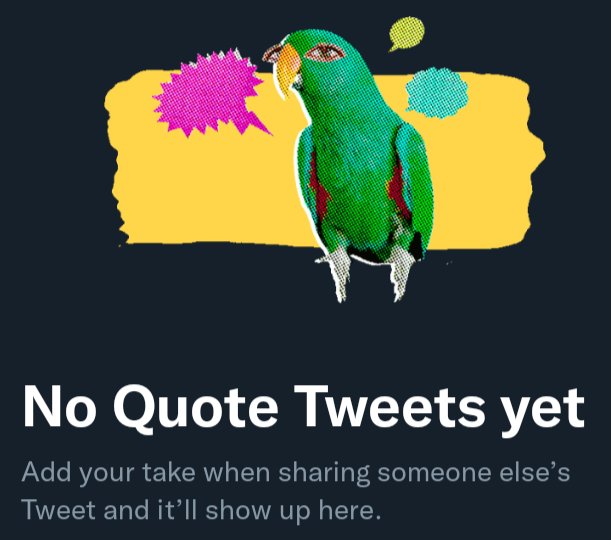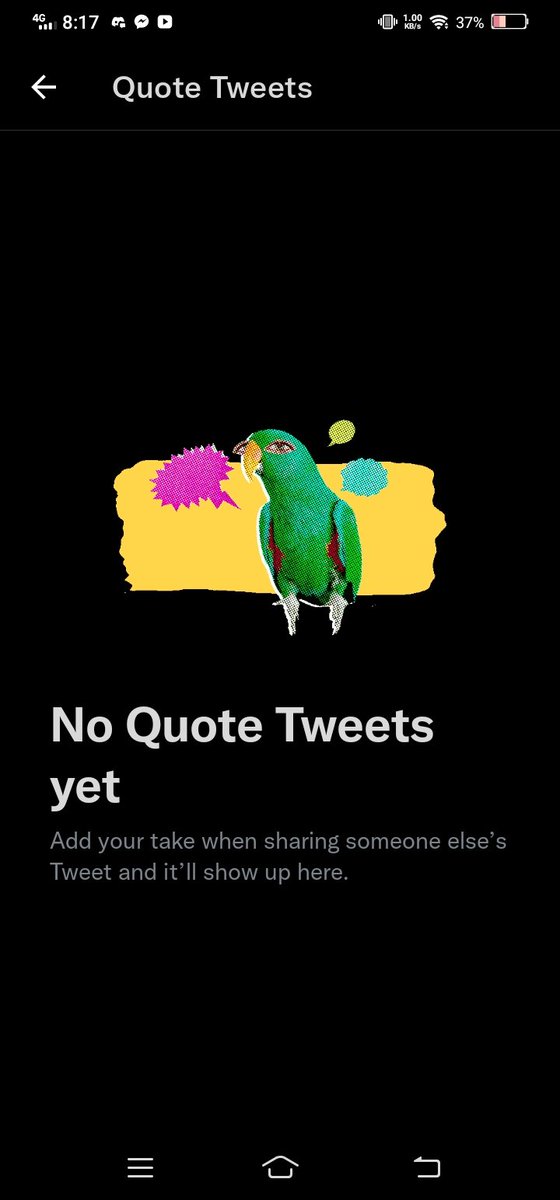Let’s just get this out of the way: we’ve all had that one bird in our lives that’s just… ugh. You know the one I’m talking about. The bird that wakes you up at 4 a.m. with its obnoxious squawking, poops on your car, or straight-up steals your food. Yeah, THAT bird. Today, we’re diving deep into the world of “that fucking bird that I hate.”
Now, before you think this is just another rant about pigeons or seagulls (although they’re definitely contenders), let’s take a moment to reflect. Birds can be beautiful creatures—until they’re not. They’re like that friend who seems great at first but then starts showing up uninvited and eating all your snacks. And honestly, who has time for that?
So, why are we so annoyed by these feathered fiends? Is it their relentless chirping? Their uncanny ability to ruin your day without even trying? Or is it something deeper? Stick around because we’re about to break it down in a way that’ll make you either love or hate birds even more.
Read also:Ainsley Earhardt And Sean Hannity Wedding A Closer Look At A Starstudded Union
But first, let’s set the stage. This article isn’t just some random vent session. It’s a comprehensive exploration of the birds we love to hate, complete with science, stats, and maybe even a few tips on how to deal with them. Ready? Let’s dive in.
Table of Contents
- Bird Biography: Who Are These Foes?
- The Usual Suspects: Common Birds We Hate
- Why Do We Hate Them? Breaking It Down
- The Science Behind the Hate
- Practical Solutions: How to Deal with That Bird
- The Psychology of Bird Hatred
- Environmental Impact: Are Birds Really That Bad?
- Urban Birds: The City’s Feathery Plague
- Final Thoughts: Can We Coexist?
- FAQ: Your Burning Questions About Birds
Bird Biography: Who Are These Foes?
Before we jump into the nitty-gritty of why we hate certain birds, let’s talk about who they are. Birds are fascinating creatures, but some species have earned themselves a bad reputation. Below is a quick rundown of the most hated birds in the world:
Bird Biodata
| Bird Species | Scientific Name | Common Traits | Why We Hate Them |
|---|---|---|---|
| Pigeon | Columba livia | Urban-dwelling, gray plumage | They poop everywhere and spread diseases. |
| Seagull | Larus canus | Large, noisy, scavengers | They steal food and make beaches messy. |
| Crow | Corvus brachyrhynchos | Intelligent, black feathers | They raid trash cans and scare pets. |
| Starling | Sturnus vulgaris | Small, iridescent plumage | They invade gardens and destroy crops. |
So, there you have it. These birds aren’t just random nuisances—they’re well-known troublemakers with a knack for ruining our days.
The Usual Suspects: Common Birds We Hate
Let’s face it, some birds are just more annoying than others. Whether it’s their noise, behavior, or sheer numbers, certain species have earned a spot on our “most hated” list. Here’s a closer look at the usual suspects:
Pigeons: The Urban Scourge
Pigeons, or “rats with wings” as some like to call them, are a common sight in cities around the world. They’re known for their relentless presence, messy habits, and tendency to spread diseases. Did you know that pigeons can carry over 60 diseases? Yeah, that’s a lot.
Seagulls: The Beach Bullies
Seagulls are the ultimate beach bullies. They swoop in, steal your fries, and leave their droppings everywhere. It’s like they’re on a mission to ruin your summer vibe. But hey, can you blame them? Humans do tend to litter, and seagulls are just taking advantage of the situation.
Read also:Desitvbox
Crows: The Smart Ones
Crows are incredibly intelligent birds, but that doesn’t make them any less annoying. They’ve been known to raid trash cans, scare pets, and even mimic human speech. Their intelligence makes them fascinating, but it also makes them more of a nuisance.
Why Do We Hate Them? Breaking It Down
So, why exactly do we hate these birds so much? Is it their behavior, their appearance, or something else entirely? Let’s break it down:
- Noise Pollution: Birds can be incredibly noisy, especially early in the morning. Who needs an alarm clock when you’ve got a pigeon chirping outside your window?
- Messy Habits: Birds poop. A lot. And they don’t care where they do it. Whether it’s on your car, your patio, or even your head, bird droppings are a constant reminder of their presence.
- Aggressive Behavior: Some birds, like seagulls and crows, can be downright aggressive. They’ll steal your food, chase your pets, and even attack humans if they feel threatened.
It’s not just about the noise or the mess, though. There’s something deeper at play here. Birds invade our personal space, disrupt our routines, and generally make life more difficult. And honestly, who has time for that?
The Science Behind the Hate
Now, let’s get scientific for a moment. Why do birds behave the way they do? Is it their biology, their environment, or a combination of both? Here’s what the experts have to say:
Bird Behavior: Nature vs. Nurture
Bird behavior is influenced by a variety of factors, including genetics, environment, and social interactions. For example, pigeons are naturally drawn to urban areas because they provide food, shelter, and safety. Seagulls, on the other hand, are opportunistic feeders who thrive on human waste.
The Impact of Urbanization
Urbanization has played a significant role in shaping bird behavior. As cities expand, birds adapt to their new environments by changing their diets, nesting habits, and social structures. While this adaptability is impressive, it also makes them more of a nuisance to humans.
Practical Solutions: How to Deal with That Bird
Okay, so now that we’ve established why we hate certain birds, let’s talk about solutions. How can we deal with these feathered fiends without losing our sanity? Here are a few practical tips:
- Install Bird Deterrents: From spikes to nets, there are plenty of products designed to keep birds away from your property.
- Clean Up After Yourself: Birds are attracted to food, so make sure to clean up any crumbs or trash that might be tempting.
- Use Noise Deterrents: Some people use ultrasonic devices or loud noises to scare birds away. Just be careful not to disturb your neighbors!
Of course, not all solutions are foolproof. Birds are incredibly adaptable creatures, and they’ll often find ways to outsmart our best efforts. But hey, every little bit helps, right?
The Psychology of Bird Hatred
Let’s take a moment to explore the psychology behind bird hatred. Why do we hate certain animals more than others? Is it a primal instinct, or something more complex?
The Fear Factor
Fear plays a big role in our perception of birds. Some people are afraid of birds because of their size, their sharp beaks, or their unpredictable behavior. Others are simply annoyed by their constant presence. Either way, fear can turn into hatred pretty quickly.
Perception vs. Reality
It’s important to remember that birds aren’t inherently bad. They’re just trying to survive in a world that’s constantly changing. Our perception of them is shaped by our experiences, our environment, and even our cultural background.
Environmental Impact: Are Birds Really That Bad?
While it’s easy to hate birds for their annoying habits, it’s important to consider their role in the ecosystem. Birds play a crucial role in pollination, pest control, and seed dispersal. Without them, our world would be a very different place.
Conservation Efforts
Many bird species are actually endangered due to habitat loss, pollution, and climate change. Conservationists are working hard to protect these birds and ensure their survival. So, the next time you see a bird, take a moment to appreciate its beauty and importance in the natural world.
Urban Birds: The City’s Feathery Plague
Urban birds are a unique challenge. They’ve adapted to city life in ways that make them both fascinating and frustrating. From pigeons to sparrows, these birds have learned to thrive in even the most inhospitable environments.
The Future of Urban Birds
As cities continue to grow, the future of urban birds remains uncertain. Will they continue to adapt, or will they eventually disappear? Only time will tell. In the meantime, we’ll just have to learn to coexist—or at least try to.
Final Thoughts: Can We Coexist?
So, there you have it. Birds can be annoying, frustrating, and downright infuriating at times. But they’re also fascinating creatures with a vital role to play in the ecosystem. Can we learn to coexist with them, or will we always see them as pests?
Ultimately, the answer lies in our perception. If we can shift our focus from annoyance to appreciation, we might just find a way to live harmoniously with our feathered neighbors. And who knows? Maybe one day, we’ll even learn to love them.
What do you think? Do you have a bird you love to hate? Let us know in the comments below, and don’t forget to share this article with your friends. Together, we can spread the word about the fascinating—and sometimes infuriating—world of birds.
FAQ: Your Burning Questions About Birds
Got questions about birds? We’ve got answers. Here are some of the most common questions we get:
- Why do birds chirp so early in the morning? Birds chirp early in the morning because it’s their way of communicating with each other. They’re marking their territory, attracting mates, and warning off predators.
- Can birds spread diseases to humans? Yes, some birds can carry diseases that are transmissible to humans. Pigeons, for example, can carry salmonella, histoplasmosis, and other illnesses.
- How can I keep birds away from my property? Install bird deterrents, clean up after yourself, and use noise deterrents to scare them away.
And there you have it. A comprehensive guide to the birds we love to hate. Thanks for reading, and don’t forget to check out our other articles for more fascinating insights into the world of wildlife.


